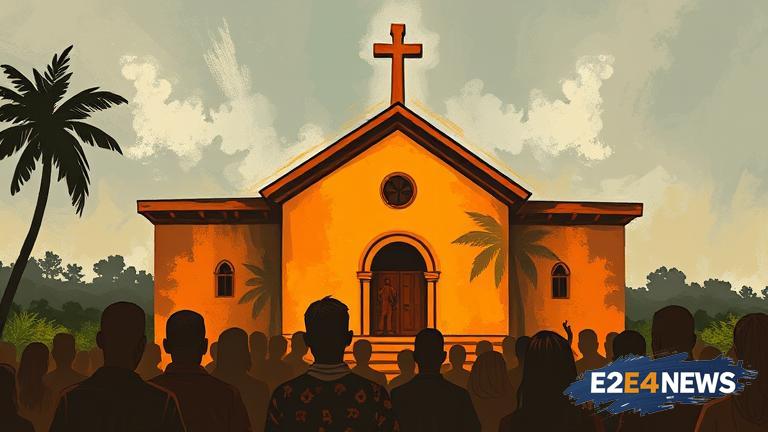The Odorkor Methodist Church in Ghana has announced that it is reconsidering its role as a polling centre for future elections. This decision comes after a series of violent incidents occurred at the church during past elections, putting the lives of church members and staff at risk. The church has been serving as a polling centre for many years, but the increasing violence and tension associated with elections have made it necessary for the church to reassess its involvement. According to church officials, the violence has not only affected the church’s property but also disrupted worship services and other church activities. The church is concerned that its continued involvement as a polling centre could lead to further violence and harm to its members. The decision to reconsider the church’s role as a polling centre has been met with mixed reactions from the community, with some supporting the church’s decision and others opposing it. Some argue that the church’s withdrawal from its role as a polling centre could disenfranchise voters and undermine the democratic process. Others, however, believe that the church’s safety and well-being should be the top priority. The church’s leadership has stated that it will engage in consultations with stakeholders, including the Electoral Commission and the community, to determine the best course of action. The church’s decision is not only significant for the local community but also has implications for the broader discussion around election violence and the role of religious institutions in promoting peace and stability. In recent years, Ghana has experienced a rise in election-related violence, which has led to concerns about the country’s democratic stability. The Odorkor Methodist Church’s decision to reconsider its role as a polling centre highlights the need for urgent attention to be paid to addressing the root causes of election violence. The church’s leadership has called on the government and other stakeholders to take concrete steps to prevent violence and ensure the safety of all citizens during elections. The incident has also sparked a debate about the role of religious institutions in promoting peace and stability in Ghana. Many have praised the church’s decision, citing the need for religious institutions to prioritize their members’ safety and well-being. Others have criticized the decision, arguing that it could set a bad precedent for other religious institutions to withdraw from their civic responsibilities. As the church continues to engage in consultations and weigh its options, the community remains anxious about the potential implications of the church’s decision. The incident has also raised questions about the effectiveness of the Electoral Commission’s measures to prevent violence and ensure the safety of polling centres. The Commission has stated that it is committed to working with the church and other stakeholders to find a solution that balances the need for safety with the need to ensure the integrity of the electoral process. Ultimately, the Odorkor Methodist Church’s decision to reconsider its role as a polling centre serves as a reminder of the complex challenges that Ghana faces in promoting peace, stability, and democratic governance.
